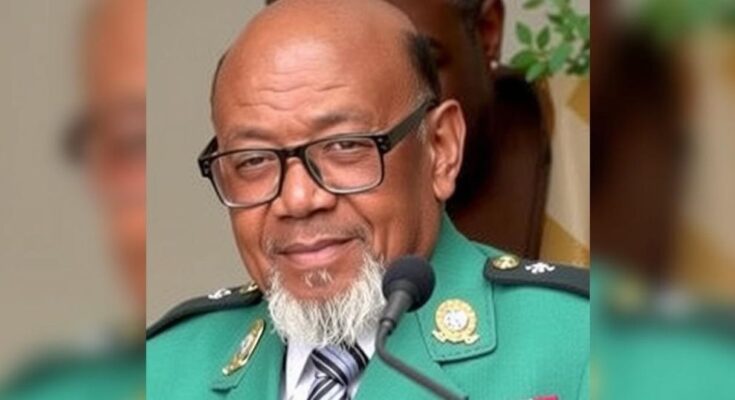Desi Bouterse, the former dictator of Suriname and fugitive tied to the murder of political opponents, has died at 79. President Chan Santokhi expressed condolences to Bouterse’s family. Bouterse was convicted for the execution of 15 individuals in 1982 but had refused to serve his 20-year sentence.
Desi Bouterse, the former dictator of Suriname and notorious fugitive, has passed away at the age of 79, as confirmed by the Surinamese government on Wednesday. President Chan Santokhi extended condolences to his family, stating, “In anticipation of more detailed and definitive information from official channels, we would like to offer our condolences to the wife, children, and other surviving relatives for this loss.” Bouterse died on Tuesday, leaving behind a legacy marred by a conviction for the 1982 execution of 15 political opponents, including journalists and lawyers. Despite his conviction being upheld in December, he had maintained his refusal to serve a 20-year prison sentence.
Desi Bouterse was a prominent figure in Suriname’s political landscape, having ruled the nation during a military regime from 1980 until 1987. His tenure was characterized by human rights abuses, most notably the killing of 15 political dissidents in December 1982, an event widely condemned both domestically and internationally. After relinquishing power, Bouterse remained a controversial figure, engaging in various political roles until his conviction brought renewed attention to his past crimes. His death marks the end of a tumultuous chapter in Suriname’s history, as the country continues to navigate the legacy of authoritarian rule.
The death of Desi Bouterse signifies a notable moment in Suriname’s history, one marked by his controversial and violent regime. While he passed away without serving his sentence for heinous acts committed during his rule, Bouterse’s legacy will continue to evoke discussion regarding justice, accountability, and the impacts of dictatorship in Suriname. His loss elicits a complex mixture of reflections on governance, human rights, and the ongoing struggles for democratic integrity in the nation.
Original Source: www.barrons.com




